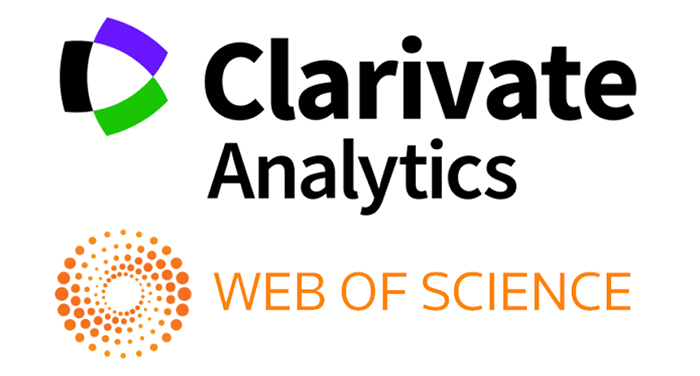KOGNITIV TIL O’ GANISHDA AQAMLI TEXNOLOGIYANING O’ NI
"Maqola"
Texnologiyalar paydo bo'lishi va raqamli dunyoning rivojlanishi tillarni o'rganish va o'rgatish usullarini o'zgartirdi. Biroq, texnologiyalarning o'rni ularo'qitish vositasi sifatida foydalanilganda aniqlanishi kerak. Ushbu maqola ingliz tilini ikkinchi til sifatida o'rganish kontekstida texnologiyalarni til o'rganishdagi rolini o'rganadi. Tadqiqot ob'ektlari - bu tilni kasbiy maqsadlarda o'rganadigan xususiy universitet talabalari. Tadqiqot kvazi-eksperimental usuldan foydalaniladi, chunki tadqiqot mavzusi tadqiqotchining talabalari orasidan tanlanadi.
References
Deegan, R. (2015). Complex mobile learning that adapts to learners’ cognitive load. International Journal of Mobile and
Blended Learning, 7(1), 13-24. https://doi.org/10.4018/ijmbl.2015010102.
Derry, S.J. (1990). Flexible cognitive tools for problem solving instruction. Paper presented at the annual meeting of the
American Educational Research Association, Boston, MA, April 16-20.
Froese, A. D., Carpenter, C. N., Inman, D. A., Schooley, J. R., Barnes, R. B., Brecht, P. W., & Chacon, J. D. (2012).
Effects of classroom cell phone use on expected and actual learning. College Student Journal, 46(2), 323-332.
Hwang, G.-J., & Chang, S.-C. (2015). Effects of a peer competition-based mobile learning approach on students’ affective
domain exhibition in social studies courses. British Journal of Educational Technology, 47(6), 1217-1231.
https://doi.org/10.1111/bjet.12303
Kommers, P., Jonassen, D. H. & Mayes T. (Eds.). (1992). Cognitive tools for learning. Heidelberg FRG: Springer-Verlag.
Lajoie, S.P. (1990). Computer environments as cognitive tools for enhancing mental models. Paper presented at the annual
meeting of the American Educational Research Association, Boston, MA, April 16-20.
Paas, F., & Ayres, P. (2014). Cognitive load theory: A broader view on the role of memory in learning and education.
Educational Psychology Review, 26(2), 191-195. https://doi.org/10.1007/s10648-014-9263-5
Rogers, K. D. (2011). Mobile learning devices. United States of America: Solution Tree Press.
Rumelhart, D.E., & Norman, D.A. (1978). Accretion, tuning, and restructuring: Three modes of learning. In J.W. Cotton &
R.L. Klatsky (Eds.), Semantic factors in cognition. Hillsdale, NJ: Lawrence Erlbaum.
Wittrock, M.C. (1974). Learning as a generative activity. Educational Psychologist, 11, 87-95
Ilmiy xodim, [9/20/2024 12:33 PM]
ASLANOVA, A. (2024). BRENDINGNI TARGʻIB QILISHDA DIGITAL PR VOSITALARI. News of the NUUz, 1(1.8. 1), 257-260.
Ilmiy xodim, [9/20/2024 12:35 PM]
AYUBOVA, S. (2024). SAMARQANDNING REGISTON ANSAMBLIDAGI BEZAKLARNING RAMZIY MA’NOLARI. News of the NUUz, 1(1.8. 1), 8-11.
Ilmiy xodim, [9/20/2024 12:36 PM]
EGAMBERDIYEV, A. (2024). ABDULAHAD TO ‘RANING BUXORO AMIRLIGI TAXT VORISI ETIB TAYINLANISHI TARIXI. News of the NUUz, 1(1.8. 1), 28-31.
Ilmiy xodim, [9/20/2024 12:37 PM]
KATTAYEVA, G. (2024). OKS SIVILIZATSIYASI BO ‘YICHA 2023-YILDA NASHR ETILGAN YANGI TADQIQOTLAR: 3.2.-QISM (“QADIMGI SHARQ ARXEOLOGIYASI BO ‘YICHA 12-XALQARO KONFERENSIYA MATERIALLARI” TO ‘PLAMI MISOLIDA). News of the NUUz, 1(1.8. 1), 12-14.
Ilmiy xodim, [9/20/2024 12:37 PM]
МАТБАБАЕВ, Б., & РАХИМОВ, К. (2024). НОВЫЙ ПАМЯТНИК ЭПОХИ БРОНЗЫ АЛИБАЙТЕПА (ЮГА УЗБЕКИСТАНА). News of the NUUz, 1(1.8. 1), 15-18.
Copyright (c) 2024 O‘zMU xabarlari

This work is licensed under a Creative Commons Attribution-NonCommercial-ShareAlike 4.0 International License.


.jpg)

.png)







